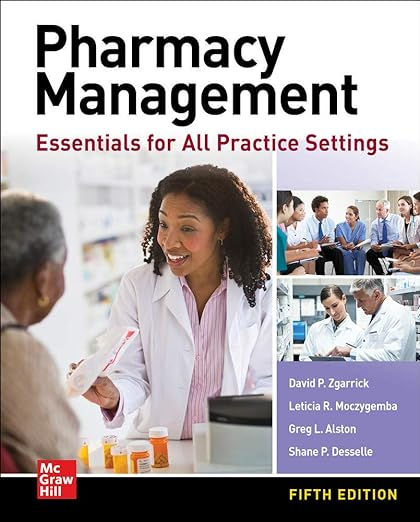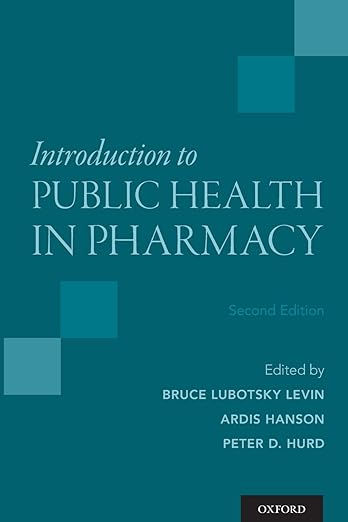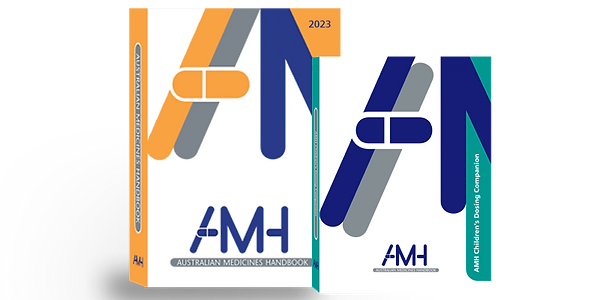Recommended Literature
Here are some texts and books that significantly contributed to my professional growth in the health and pharmacy sectors. Some due to their indispensable content, others for their practicality, and a few for presenting a fresh perspective in crafting health policies or strategies.
Essentials of Pharmacy Management (Desselle & Zgarrick, 2019)
For any aspiring or even seasoned Pharmacy Assistant, this book is an invaluable resource. It provides insights into the intricacies of pharmacy operations, personnel management, marketing, and financial management. During my time in various pharmacy roles, understanding the nuances of pharmacy management was crucial. This book, with its practical examples and modern approach, significantly helped bridge the gap between my academic pursuits and professional responsibilities. Its content has frequently influenced my decisions in providing optimal patient care and efficiently managing pharmacy resources.
Desselle, S., & Zgarrick, D. (2019). Essentials of Pharmacy Management. Jones & Bartlett Learning.



Public Health in Pharmacy (Bruce, 2018)
In my journey towards becoming a health educator and while pursuing a Master's in Public Health, understanding the convergence of pharmacology and public health was indispensable. This book systematically delves into how pharmacological knowledge can be applied to address large-scale health challenges. Smith's comparative analysis of health systems worldwide and their pharmaceutical practices provided a broader perspective, essential for my projects and assignments. It was particularly useful in understanding health inequalities and the ways in which different countries tackle public health challenges through pharmacology.
Smith, P. (2018). Public Health Pharmacology. Wiley-Blackwell.
The Australian Medicines Handbook (AMH) is a crucial resource in public health, offering evidence-based information on medications, therapeutic guidelines, and clinical decision-making. It provides detailed descriptions of drug classes, indications, dosage recommendations, adverse effects, and interactions, ensuring healthcare professionals have accurate information for prescribing medications. The AMH also provides practical guidance on medication management and prescribing principles, particularly relevant for public health practitioners involved in policy development. It incorporates references from high-quality academic sources, enhancing students' understanding of pharmacology, clinical trials, pharmacoepidemiology, and pharmacovigilance. As a health educator, this book will enhance my knowledge and confidence in effectively explaining the intricacies of a specific condition and its corresponding therapy when educating patients.
Australian Medicine Handbook. (n.d.). Ibuprofen. In Australian Handbook (online). Retrieved September 5, 2023, from https://amhonline-amh-net-au.ezproxy.uws.edu.au/chapters/rheumatological-drugs/drugs-other-musculoskeletal-conditions/nsaids/ibuprofen
References
Code of Ethics for Pharmacists. (2017). Pharmaceutical Society of Australia. Retrieved September 24, 2023, from https://www.psa.org.au/wp-content/uploads/2018/07/PSA-Code-of-Ethics-2017.pdf
Fejzic, J., & Barker, M. (2019). Pharmacy practitioners’ lived experiences of culture in multicultural Australia: From perceptions to skilled practice. PLOS ONE, 14(6), e0217673. https://doi.org/10.1371/journal.pone.0217673
Hinton, A., McReynolds, M. R., Martinez, D., Shuler, H., & Termini, C. M. (2020). The power of saying no. EMBO Reports, 21(7). https://doi.org/10.15252/embr.202050918
Johnson, C., Keating, J. L., Farlie, M., Kent, F., Leech, M., & Molloy, E. (2019). Educators’ behaviours during feedback in authentic clinical practice settings: an observational study and systematic analysis. BMC Medical Education, 19(1). https://doi.org/10.1186/s12909-019-1524-z
Moyo, M., Goodyear-Smith, F., Weller, J., Robb, G., & Shulruf, B. (2015). Healthcare practitioners’ personal and professional values. Advances in Health Sciences Education, 21(2), 257–286. https://doi.org/10.1007/s10459-015-9626-9
Naughton, C. A. (2018). Patient-Centered communication. Pharmacy, 6(1), 18. https://doi.org/10.3390/pharmacy6010018
Schippers, M. C., & Ziegler, N. (2019). Life Crafting as a way to find purpose and meaning in life. Frontiers in Psychology, 10. https://doi.org/10.3389/fpsyg.2019.02778
Siburian, J., Corebima, A. D., Ibrohim, I., & Saptasari, M. (2019). The correlation between critical and creative thinking skills on cognitive learning results. Eurasian Journal of Educational Research, 19(81), 1–16. https://doi.org/10.14689/ejer.2019.81.6